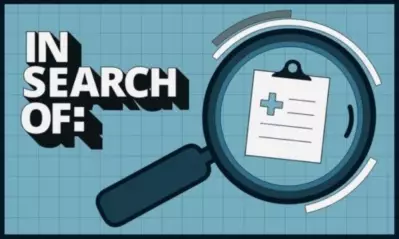Community health vs. public health: What’s the difference?
This article was updated on December 7, 2023.

Written by Michael Feder

Reviewed by Mark Jóhannsson, DHSc, MPH, Dean, College of Health Professions

Public health and community health are both essential disciplines for overall wellness and disease prevention in communities. Community health might be limited to a neighborhood or district, whereas public health typically refers to a wider geographical area, such as a city, state or entire country.
Both public and community health are vital because healthcare issues can affect everyone. Over the past few decades, major medical events ranging from the AIDS epidemic to the COVID-19 pandemic placed public and community health in the spotlight.
Though public and community health are both concerned with effective healthcare, disease prevention and community outreach, their level of approach involves distinctions that are important for individuals who want to work in either sector.
Public health definition
According to the Centers for Disease Control and Prevention (CDC), “Public health is the science of protecting and improving the health of people and their communities. This work is achieved by promoting healthy lifestyles, researching disease and injury prevention, and detecting, preventing and responding to infectious diseases.”
The overall goal is to use these different tools to protect the health of everyone within a target population. It involves recommendations and regulations to keep the overall health of a population sound, despite dangers or diseases that may arise.
Community health definition
The American Hospital Association defines community health as a collection of “non-clinical approaches for improving health, preventing disease and reducing health disparities through addressing social, behavioral, environmental, economic and medical determinants of health in a geographically defined population.”
Community health experts identify related factors (known as social determinants) that keep communities and specific groups within the wider population from getting effective healthcare and experiencing overall wellness. These factors can include variables like race, nationality, language, economic status, age and location. These factors are accounted for in the design of community health programs.
The difference between public health and community health
The primary difference between community and public health is scope. Public health has a much broader focus — both in terms of the number of factors it considers and the size of the target populations. As mentioned, public health efforts, such as disease prevention, involve an entire state, region or country. Community health, as its name suggests, typically focuses on concentrated areas, with many efforts occurring at the city or neighborhood level.
In other words, community health is a non-clinical, localized subspecialty within the wider field of public health.
Example: Public health approach
An example of the scope of public health is the CDC’s effort to enact and enforce vaccination requirements . These are state or national requirements meant to stop the spread of diseases such as hepatitis, measles and mumps. Most states require that children receive vaccinations before attending school. Meanwhile, those who work directly with vulnerable populations need annual influenza vaccines.
These examples show the scope of public health. Immunization efforts might focus on a particular state but be based on national guidelines meant to stop the spread of preventable diseases. Though these immunization efforts typically involve aspects of community health, such as ensuring people in a localized area have access to and proper information about vaccinations, the overall focus is on protecting people in the entire state.
Example: Community health approach
An example of a community health project is a local health needs assessment . This includes research about disparities and gaps in healthcare access. Community health workers might use meetings and focus groups to get feedback from local communities about issues that keep people from accessing local health services, such as a lack of transportation options or education. With this information, public health agencies can create community health programs that address any shortcomings or disparities.
Jobs in public health
From a general perspective, public health careers may involve research, communication and outreach, and planning and technology. The following are just several of the many career options:
- Epidemiologists
* study the spread of diseases and patterns of transmission to stop them from affecting the public and to plan responses to current and future outbreaks.
- Medical scientists
* study diseases and health issues that impact communities and find treatments, vaccines and preventive measures.
- Communication and public relations specialists
craft messages to explain healthcare issues and spur the population to take preventive measures, get vaccinations and engage in behaviors that protect their health.
- Health policy analysts
* study rules and laws related to healthcare and offer advice about new policies and legislation to improve overall public health.
These jobs require an educational background in either public health-related studies or healthcare.
*University of Phoenix does not educationally prepare for these career outcomes.
Skills needed for public health jobs
The skills necessary for public health jobs vary by specialty but often include the following:
● Research abilities are essential in many public health jobs. Professionals need to build upon current knowledge and find out which steps and policy changes worked in similar circumstances or populations.
● Communication skills are necessary for public health professionals to accurately and convincingly explain why certain actions or behaviors are necessary. Communication is also needed when engaging with community stakeholders.
● Data analysis is required for describing and assessing community health status.
Master’s degree programs, such as a master’s in public health, can help students develop more helpful skills and knowledge they can apply in public health professions.
Jobs in community health
Community health careers typically involve being embedded within a target community and interacting directly with members of the population to improve healthcare, education and wellness based on their specific needs. Here are some jobs in this field:
- Community health workers
act as a liaison between health providers and agencies and members of the community. Their goal is to understand the needs of the population and overcome roadblocks that keep those needs from being addressed.
- Health educators promote wellness and awareness of diseases and necessary medical services. These professionals aim to assess the needs of the community and create programs and materials that meet those needs and address common health problems.
- Public health nurses provide medical services directly to community members. This may include working at a community health clinic or in satellite locations easily accessible to members of the population. This career requires a nursing degree and a license from the state.
Skills needed for community health jobs
Community health workers need some of the same skills as their public health peers. However, because they’re deeply embedded in the community, they also need more nuanced skills , including:
- Language skills: If you work in a community using languages other than English, you will need a level of fluency to communicate closely with the population.
- Analytical abilities: Many professionals must assess the needs of a community, create programs that address those needs and measure outcomes.
- Cultural understanding: Community health workers need to understand the values and viewpoints of the people with whom they work so they can create solutions that fit within the culture.
Is a career in public health or community health right for you?
The U.S. Bureau of Labor Statistics (BLS) projects employment for community health workers to increase by 7% from 2022 to 2032. All public health jobs require balancing soft skills with an understanding of medical needs and the healthcare industry. Community health careers are also excellent if you want hands-on work that allows you to see the results of your efforts firsthand.
Depending on which role within public or community health interests you, the academic requirements also may vary. For example, public health nurses need a nursing degree and a state license. Or if your career plans include a senior, decision-making role in public or community health, you’ll want to pursue a master’s in public health or another health-related postgraduate degree.
BLS Occupational Employment Projections, 2022-2032 is published by the U.S. Bureau of Labor Statistics. This data reflects BLS’ projections of national (not local) conditions. These data points are not specific to University of Phoenix students or graduates.
Public health at University of Phoenix
- Assess community health needs to develop and interpret public health programs.
- Create and implement community health programs.
- Evaluate and apply principles of biostatistics, environmental health, epidemiology and social-behavioral models.
- Evaluate programs and appropriately apply public health research findings to community health initiatives.
- Advocate for improved health outcomes, communicate shared vision, influence change and champion solutions.
- Evaluate current local and global health trends and create recommendations for institutional and health policy response.
- Mobilize community stakeholders for public health initiatives in diverse settings.
- Create and market health communications for individuals and groups from diverse cultural, ethnic and educational backgrounds.
- Create an effective leadership strategy, lead public health professionals and manage multidisciplinary system stakeholders.
Graduates of this program will be better prepared for leadership roles in health education and community health settings. Learn more on the UOPX website .

ABOUT THE AUTHOR
A graduate of Johns Hopkins University and its Writing Seminars program and winner of the Stephen A. Dixon Literary Prize, Michael Feder brings an eye for detail and a passion for research to every article he writes. His academic and professional background includes experience in marketing, content development, script writing and SEO. Today, he works as a multimedia specialist at University of Phoenix where he covers a variety of topics ranging from healthcare to IT.

ABOUT THE REVIEWER
Mark Jóhannsson is the Dean of the College of Health Professions. He has a career spanning over 35 years of healthcare management, public health practice, higher education administration, teaching and clinical/behavioral research within corporate, community and academic settings. He has served as both an educational and keynote speaker, and he has been published in a variety of peer-reviewed and periodic literature.
This article has been vetted by University of Phoenix's editorial advisory committee.
Read more about our editorial process.
Read more articles like this:


